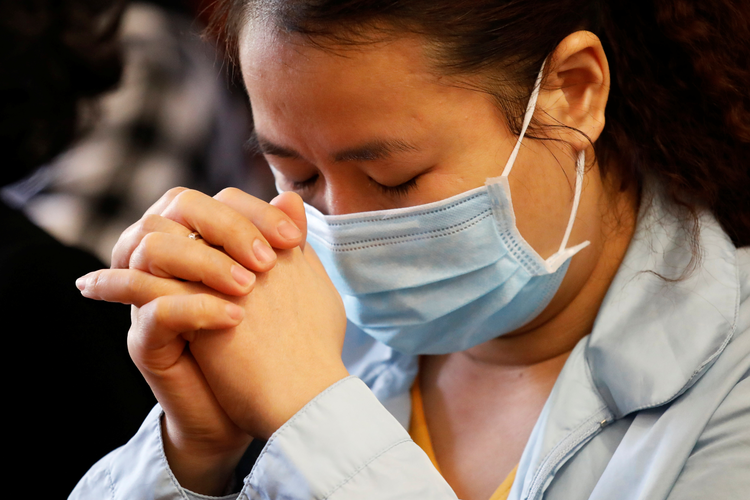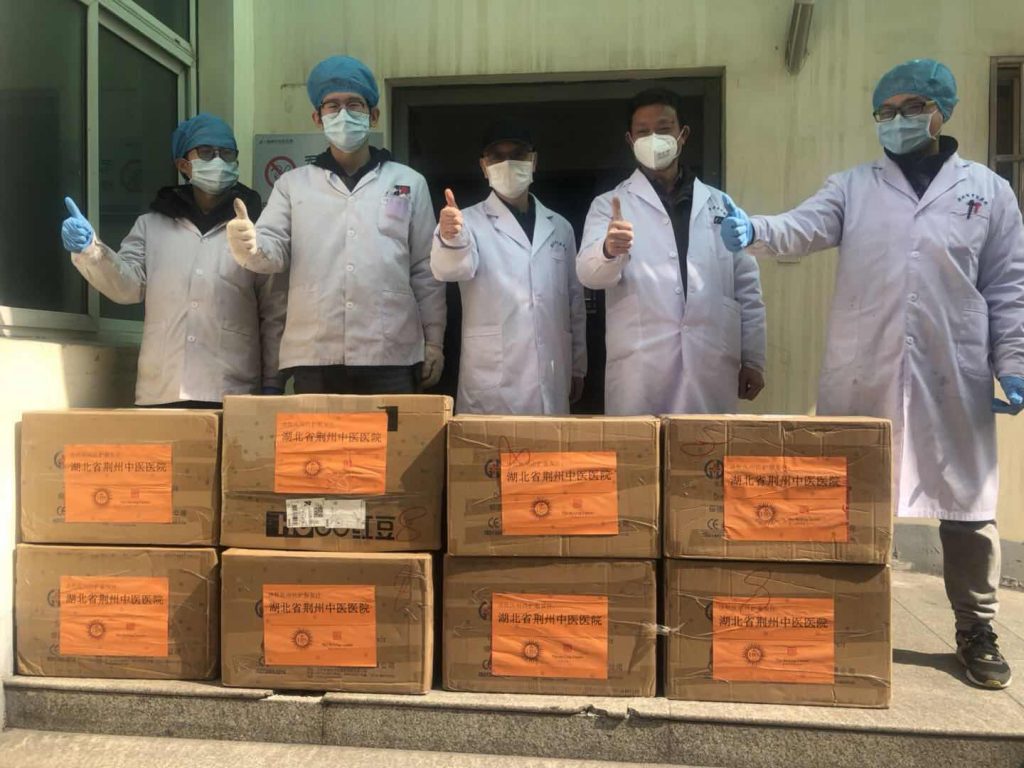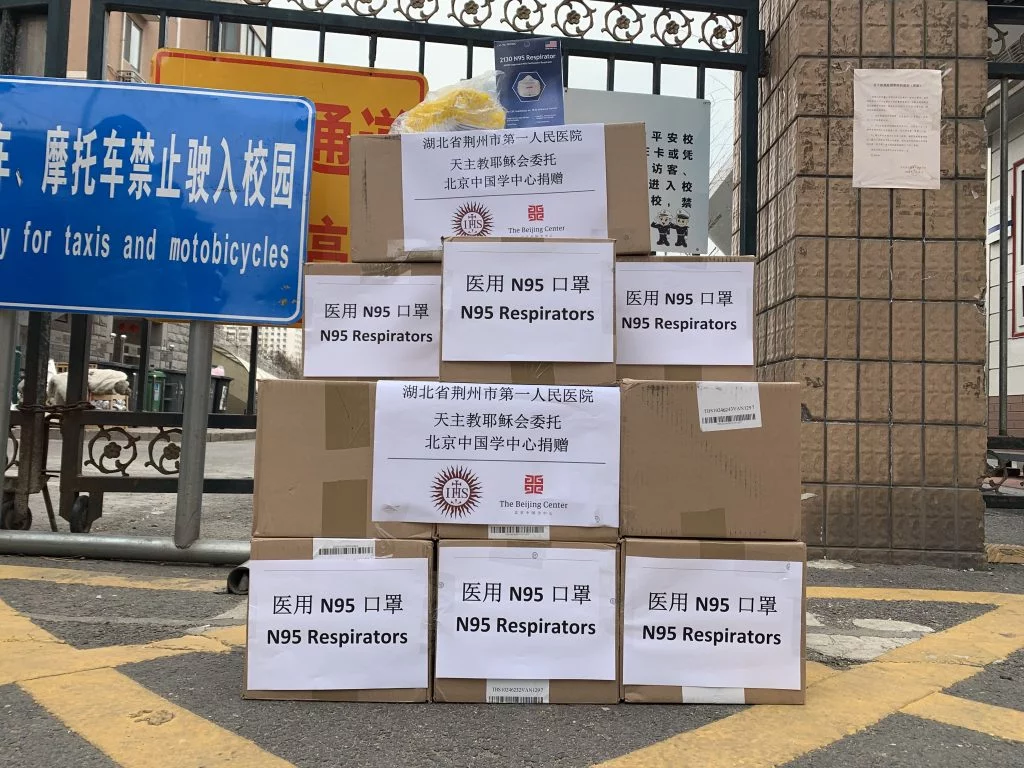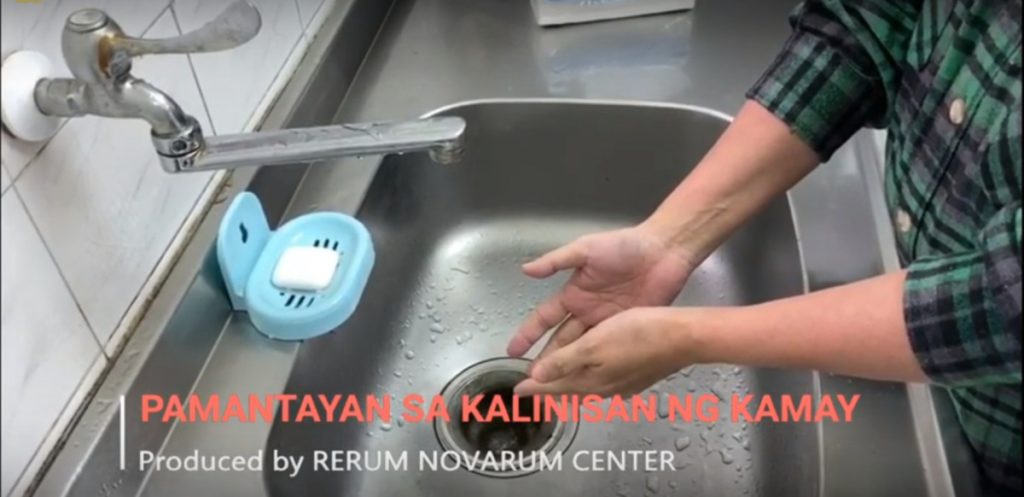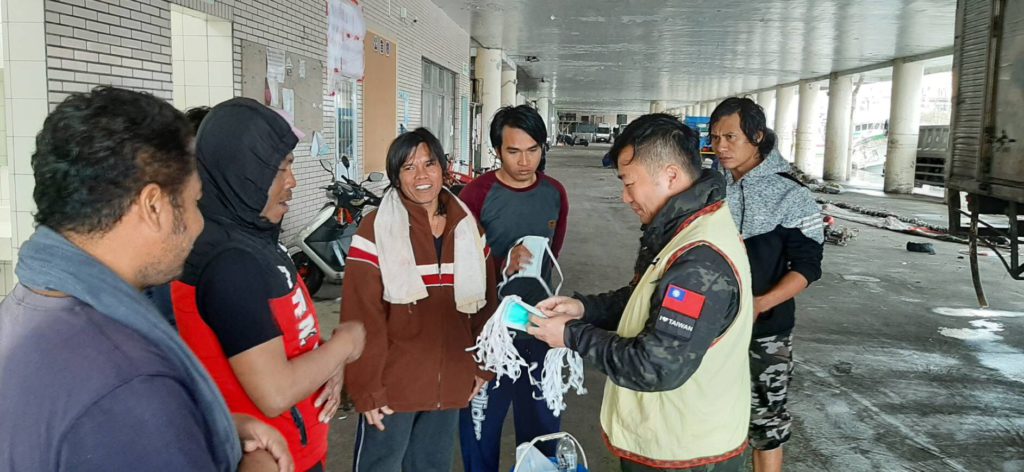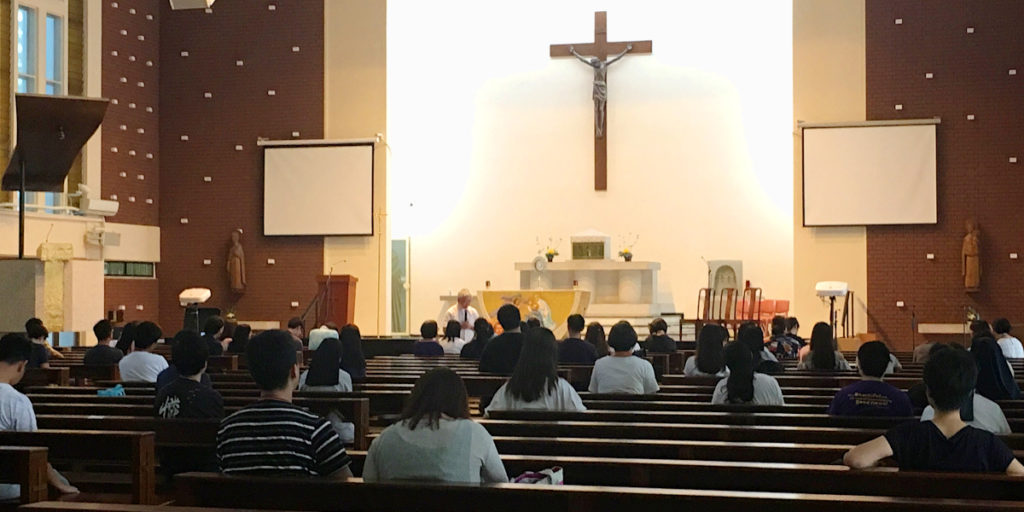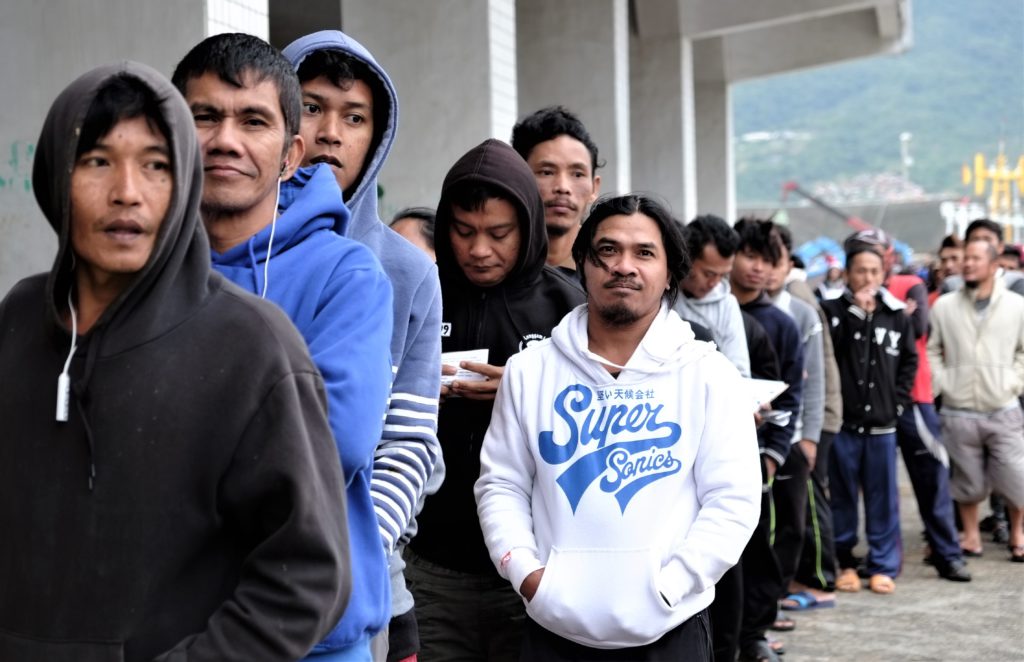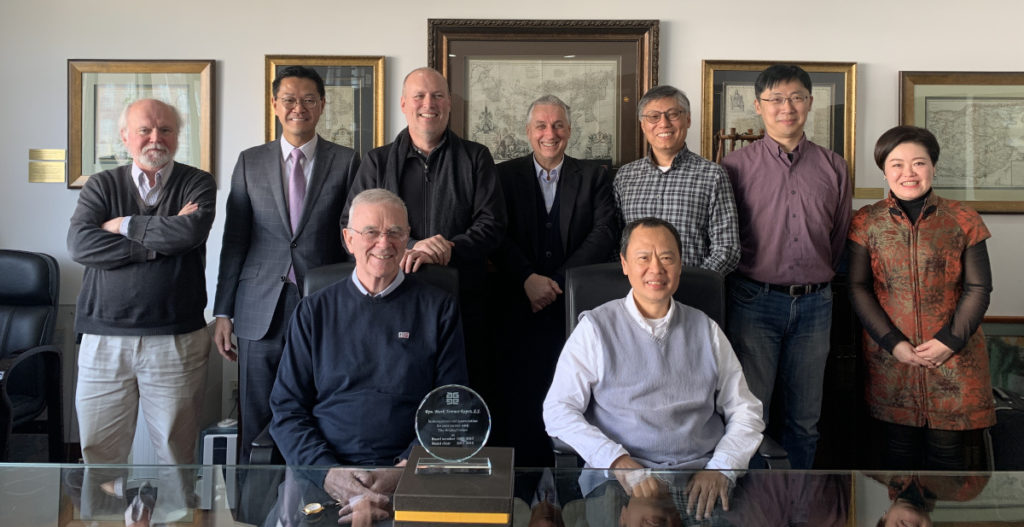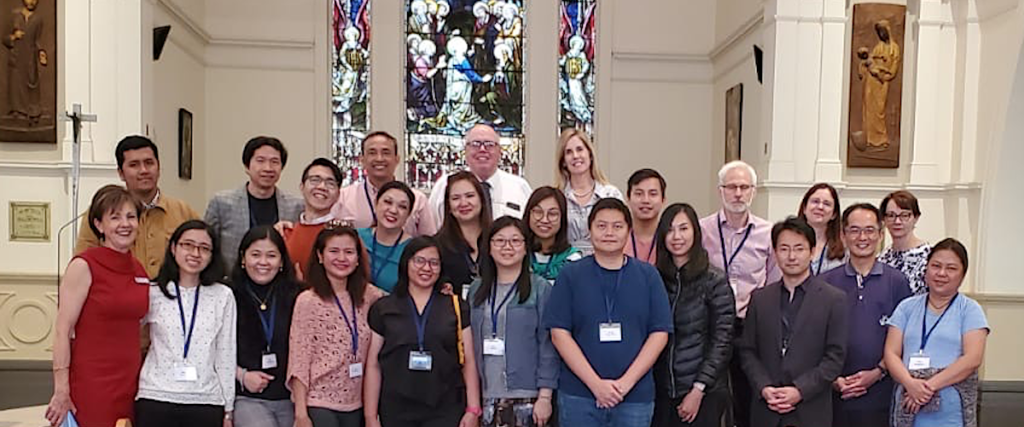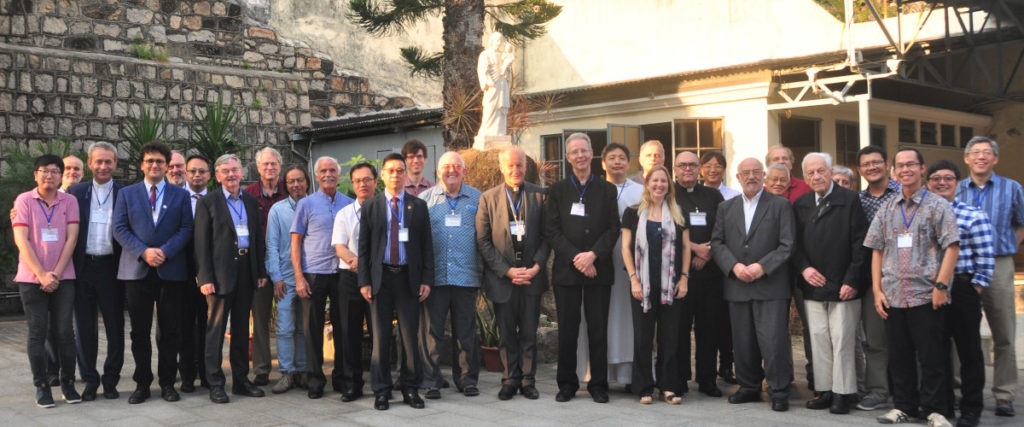A Prayer Amid an Epidemic
By Kerry Weber
Jesus Christ,
you traveled through towns and villages “curing every disease and illness.” At your command, the sick were made well. Come to our aid now, in the midst of the global spread of the coronavirus, that we may experience your healing love.
Heal those who are sick with the virus. May they regain their strength and health through quality medical care.
Heal us from our fear, which prevents nations from working together and neighbors from helping one another.
Heal us from our pride, which can make us claim invulnerability to a disease that knows no borders.
Jesus Christ, healer of all, stay by our side in this time of uncertainty and sorrow.
Be with those who have died from the virus. May they be at rest with you in your eternal peace.
Be with the families of those who are sick or have died. As they worry and grieve, defend them from illness and despair. May they know your peace.
Be with the doctors, nurses, researchers and all medical professionals who seek to heal and help those affected and who put themselves at risk in the process. May they know your protection and peace.
Be with the leaders of all nations. Give them the foresight to act with charity and true concern for the well-being of the people they are meant to serve. Give them the wisdom to invest in long-term solutions that will help prepare for or prevent future outbreaks. May they know your peace, as they work together to achieve it on earth.
Whether we are home or abroad, surrounded by many people suffering from this illness or only a few, Jesus Christ, stay with us as we endure and mourn, persist and prepare. In place of our anxiety, give us your peace.
Jesus Christ, heal us.
Kerry Weber is an executive editor of America Magazine
Jesuit Community Responds To COVID-19 Fight With Donation Of Medical Protective Suits To Hospital In HUBEI
“We are all part of one human family, no matter where we’re from. The Jesuits of Canada and the United States are honored to stand in solidarity with the people of China at this challenging time. Our prayers and hopes are with you,” President of the Jesuit Conference of Canada and the United States, Fr. Timothy P. Kesicki, SJ. Continue reading “Jesuit Community Responds To COVID-19 Fight With Donation Of Medical Protective Suits To Hospital In HUBEI”
Society of Jesus donates surgical N95 masks to aid healthcare workers in Hubei province battling COVID-19
The Society of Jesus has donated 1,800 surgical N95 masks to Jingzhou No 1 People′s Hospital in Hubei province.
Jesuit Superior General Fr Arturo Sosa SJ approved the donation, which was coordinated and arranged by The Beijing Center for Chinese Studies (TBC), the Jesuit education centre and intellectual hub operating in mainland China since 1998.
“The Society of Jesus is a Society of solidarity. This small gesture is a symbol of that wide and deep solidarity,” said Fr José Magadia SJ, General Counsellor and Regional Assistant for Asia Pacific.
Earlier this month, Chinese authorities said there is an urgent need for medical supplies, including surgical N95 masks. These masks offer better protection than regular surgical masks and are designed to prevent 95 per cent of small particles from entering the nose and mouth area.
Though not prominently appearing in international media, Jingzhou city, located about 220 kilometres (137 miles) west of Wuhan, has been greatly affected by the COVID-19 outbreak. The disease has killed more than 2,996 people and infected over 87,728 globally.
With over a thousand infected in Jingzhou city alone, healthcare workers are grappling with certain medical supplies shortages. TBC has been in direct contact with Jingzhou No1 People’s Hospital, confirming the serious need for surgical N95 masks. The centre ensured the delivery of the masks, which arrived from Canada, to the hospital’s healthcare workers.
“TBC is honored to be the facilitator and platform connecting the Jesuits to mainland China. We thank the Society for the generous donation and continued support during this challenging time,” said TBC Executive Dr Simon Koo.
“It is our privilege to support your meaningful mission with our humble donation,” said Chinese Jesuit Provincial Fr Stephen Chow SJ to the healthcare workers. He assured them of the Society’s earnest prayers and told them: “Please stay safe and healthy for your loved ones and your mission.”
EPIDEMIC PREVENTION – ZERO VULNERABILITY
PROPER HAND WASHING INSTRUCTIONAL VIDEOS ~ MULTI-LANGUAGE VERSION
The recent epidemic situation of the new Coronavirus (COVID19) is getting more and more serious. In order to promote the key measures of epidemic prevention, #Rerum Novarum Center has produced Proper Hand Washing Instructional Videos in Indonesian, Vietnamese and Filipino. We hope that migrant workers from the different countries will protect and manage their own health through the Proper Hand Washing method, which is the best protective measure at this stage.
WUHAN PNEUMONIA PREVENTION – WHOLE NATION MOBILIZED
The Rerum Novarum Center in Taiwan is proactively promoting the precautionary measures against the Wuhan Pneumonia, as well as the latest real-name purchase method of masks, to the migrant workers and fishermen in Taiwan. Employers of the migrant workers may also assist their workers in purchasing masks to protect themselves, protect the local people around them, as well as the people being cared for by the caregivers. Continue reading “WUHAN PNEUMONIA PREVENTION – WHOLE NATION MOBILIZED”
Day retreats for young people in Hong Kong
All of a sudden, 2019 became a very difficult year for people in Hong Kong. Shocked by the unexpected political and social crisis, many were concerned for the welfare of young people. Xavier House Ignatian Spirituality Centre, a Jesuit retreat house located on the small island of Cheung Chau, reached out to the city and organised day retreats for young people. Continue reading “Day retreats for young people in Hong Kong”
Being With You by Sending Winter Clothes
Rerum Novarum is an affiliated organization of the Society of Jesus, dedicated to serving disadvantaged workers in vulnerable situations and caring for foreign fishermen working at sea. This year (2019) we uphold the spirit of Jesuit’s discernment and our core mission of “direct service to reach, care for, and accompany those in need. Continue reading “Being With You by Sending Winter Clothes”
JCAP President Fr Tony Moreno is new Chair of The Beijing Center
Fr Tony Moreno SJ, President of the Jesuit Conference of Asia Pacific (JCAP), has been named as Chair of The Beijing Center (TBC) to replace Fr Mark Raper SJ who has concluded his service as Board Chair and Board Member after a 12-year tenure. Fr Raper is currently Superior of the Myanmar Jesuit Mission and former JCAP President.
Besides Fr Moreno, Chinese Jesuit Provincial Fr Stephen Chow SJ was elected Vice Chair, a newly created position that is being proposed. Dr Thomas Poon was elected Board Member.
The election took place during the TBC Board of Directors meeting on November 18. The night prior to the meeting, the board members attended the TBC Annual Thanksgiving Dinner in honour of the service learning initiatives this semester.
The event brought together celebrated partnerships and friendships, along with the opportunity to recognise the unparalleled contribution organisations, such as Bethel China, make towards improving the lives of underprivileged and impaired children in China, with the support of partners and volunteers like TBC students and staff.
In his final speech as Chair, Fr Raper said he was grateful for the wonderful reunion between passionate individuals and organisations who continue working to provide students with quality international education.
Read more about the thanksgiving dinner here.
Ignatian Teachers’ Program in Sydney
The Ignatian Teachers’ Program (ITP) was held on November 11 to 15 at St Ignatius’ College, Riverview in Sydney, Australia. Located near Lane Cove River, St Ignatius’ College has beautiful Jacaranda trees on the campus. Walking along the main building and the rose garden allowed each participant to savour the long tradition of this Jesuit school.
There were 18 participants from the Philippines, Indonesia, Japan, Macau and Hong Kong. Most of them were experienced teachers, with a few school directors, administrators and school chaplains.
The workshop began every morning with a meaningful prayer session guided by John Gills, the school’s Director of Religious Formation. The specially designed prayers helped the participants each day to open themselves to the movements of the Holy Spirit. After all, the discernment of the Holy Spirit’s promptings is at the very core of Ignatian Spirituality, which is the basis of Jesuit Education.
On the first day, the participants were asked to reflect on the history and tradition of the Ignatian approach to teaching – or what we call Ignatian Pedagogical Paradigm (IPP). The IPP pays special attention to the context of the students. Participants reflected on how the IPP enables them to accompany their students, to know their needs and to promote learning more effectively.
The most striking experience for many of the participants was the “Through the Eyes of the Student” Program. The participants shadowed a student assigned to them, learning through observation what the students experienced. It was a challenge for many because they should focus on the students without criticising them. They were not supposed to tell the students what to do. Rather, they were asked to listen and to try to find how the students felt. At the end of the day, we were all grateful for this one-day one-of-a-kind experience. We became more aware of our students’ needs and we gained new insights about learning and teaching through this unique experience.
There was also a session where participants shared their experiences and practice of the IPP in their respective schools. Aside from learning about the diverse ways IPP is implemented, the participants learned from each other. For example, students can practise the Examen in various ways depending on the school’s context. We felt encouraged that each Jesuit school was concerned about their students’ holistic growth including participation in social services for the poor in their societies.
For example, students from Sacred Heart School-Ateneo de Cebu High School are required to work in Jollibee fast food as part of their service, offering their wages to support poor families. Students from Kolese Kanisius volunteer to clean up rubbish on the public streets of Jakarta.
The participants realised not only the diversity of their situations, but also their unity as a worldwide community dedicated to a common mission. It was important to build the network of each school.
After the sharing, the educators visited the teachers of the school’s special education unit – providing yet another opportunity to learn a different way of accompanying our students.
On our last day, Jennie Hickey, Executive Director of Jesuit Education Australia, introduced the education apostolic work of the Jesuit Conference of Asia Pacific. She insisted that Jesuit education was a mission for the service of the poor as St Ignatius of Loyola and the First Companions had intended. The Society of Jesus has always worked for faith and justice.
There are many challenges in carrying out this mission as fewer Jesuits work in schools today. It is important for Ignatian educators to realise that they are called to dedicate themselves to the mission. Though our contexts are different, we still share the common mission.
We ended the five-day workshop with a Eucharistic Celebration in the school chapel. We thanked the Lord for the abundant graces that we received. Besides the formal sessions, we appreciated the informal conversations and sharing among ourselves during the breaks and over the meals. [JCAP Education]
Fr Clement Tsui SJ is the Education Delegate of the Chinese Province.
In Actione Comtemplativus – Contemplation, Mission and Martyrdom
To celebrate its 20th anniversary, the Ricci Institutes of Macau and Taipei, and the University of St Joseph Macau hosted a remarkable two-day symposium in Macau titled, “In Actione Comtemplativus – Contemplation, Mission and Martyrdom” from October 17 to 18.
It was a remarkable gathering of people and presentations. To mention only a few points of greatness: the topics, discussions and the personal sharing among participants combined to create a community of trust where group and personal reflections on apostolic mission were shared and reverenced. Through the depth of the presentations and the sharing they triggered, we were invited to go deeper in locating our personal sense of mission and Christ’s presence within; how the faith of the community anchors our sense of hope in a deeply troubled world; and how the lives of martyrs could offer inspiration and rekindle our commitment to a faith that does justice.
When I first learned of the title of the symposium – Contemplation, Mission and Martyrdom – I wondered how martyrs would be integrated into the well-established Jesuit dynamic of contemplation-in-action. Mid-morning through the first plenary session, I had my answer in Gerhard K Becker’s presentation, “Spiritual leadership in hard times: Karl Rahner and Alfred Delp”. Prof Becker led us through the life, ministry, capture, trial and martyrdom of Jesuit Fr Alfred Delp by the Nazis. Through Fr Delp’s memoirs and letter, he teased out the inner struggles of a man dedicated to justice by speaking the truth to power during a time when Germany was encompassed by hateful tyrannical leadership. Through a glimpse into Fr Delp’s ability to stand up to accusations of state betrayal and strengthened by his contemplative Christian commitment, we could look at ourselves, our past, our motivations and to think about how we affect the people around us. We were encouraged to look more deeply into the sources of our own faith and hope.
Prof Becker noted that Jesuit theologian Fr Karl Rahner was a contemporary and friend of Alfred Delp. In Rahner’s reflections on martyrdom and Christian commitment, he referred to Delp’s life and character, and points out his mystical view of God’s action in the world. Rahner was on to something of importance when he wrote in the 1960s, “The Christian of the future will be a mystic or will not exist at all”. We recognise that that future is now.
Then came Dennis McCann on the martyred Dietrich Bonhoeffer’s struggles with the Christian commitment to peace and the violent over through of Hitler, and Joseph Lee Tse-Hei on the Chinese Christian martyr Watchman Nee. These presentations, too, invited us to reflect on the motivations behind these Christian martyrs – often conflicted and unclear even to themselves – and to see what their struggles and ultimate sacrifice mean to us today.
Between the plenary sessions were many smaller group sessions of varied topics touching on contemplation, martyrdom, prayer, discernment and decision making, obedience, community building, etc. I regretted I could not attend them all.
It is impossible to write of all the excellent sessions, large and small, over the two days. I feel it important to share something of the presentation by Jesuit Fr Martin Maier, working in Brussels at the Jesuit European Social Center. Fr Maier, during an extended period of research, lived with the six Jesuits and their cook and her daughter, who would be martyred because of their commitment to a life dedicated to seeking a just solution to the long civil war in El Salvador. He spoke tenderly of his friendship with these men, their intelligence and contemplative spirit. He spoke of the meals their murdered cook had prepared for him. Similarly, Jesuit Fr Paul John Wang, a Chinese graduate student in leadership at Gonzaga University in Washington State, USA, reflected on the Salvadorian Martyrs. He highlighted their contemplation of the signs of the times in El Salvador and how their total dedication to their mission of justice led to their martyrdom.
At the symposium’s final review, we recognised that we enjoyed the formation of a holy space that nurtured us in a community of learning, reflection and prayer. Someone commented, “What Rahner said, that Christians of the future would need to live as mystics, is what happened for us here. We leave this symposium knowing that the Holy Spirit has hovered over us.”
Fr Julio Giulietti SJ is a Fellow at the Georgetown University Berkley Center for Religion, Peace and World Affairs, and living in Vietnam for 10 years.

